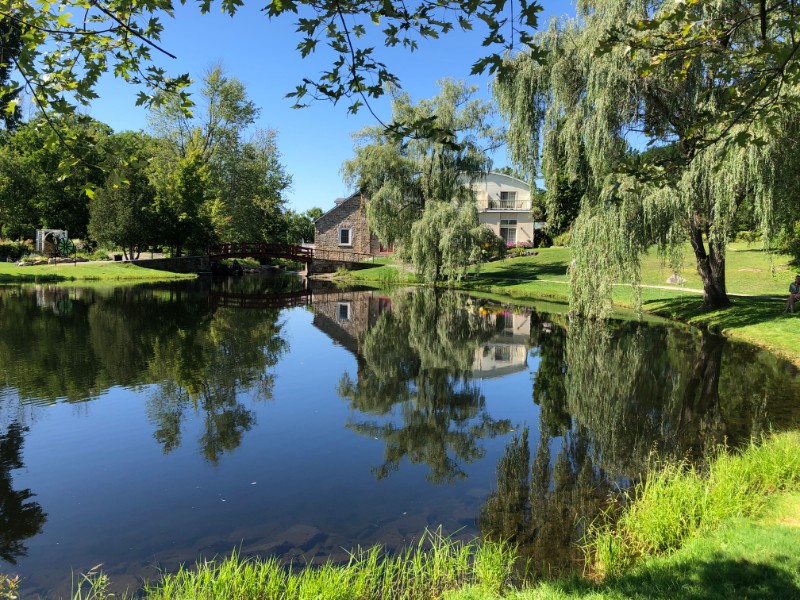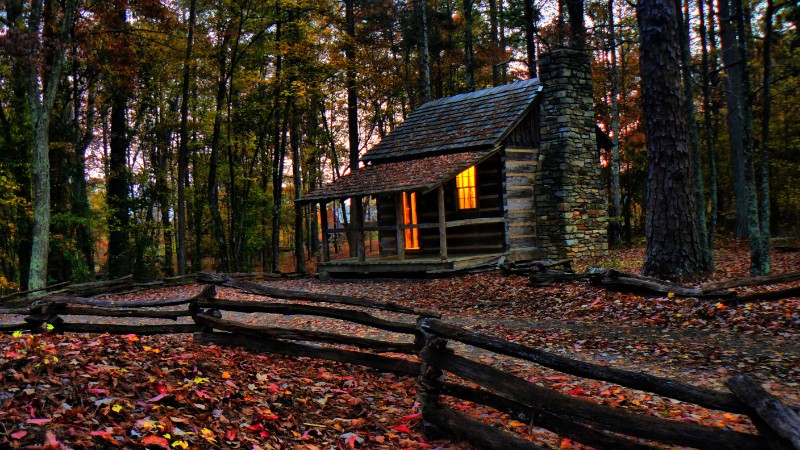COVID-19 is driving some curious real estate trends. With many of us working from home, the view on where to live has changed:
- Buyers are less concerned about purchasing something near their workplace and are looking further afield.
- Given the current restrictions on travel, everyone seems to want to buy a cottage these days.
Good news: Arranging a mortgage on a cottage or vacant land / new construction is not too different from buying your principal residence, with just a few extra requirements from lenders.
More good news: if you have considerable equity in your home, you can use some of that toward a down payment or to purchase the property outright and start enjoying that cottage sooner rather than later. Depending how much equity you have, many lenders will allow you to borrow up to 80 per cent of the value of your residence to finance a cottage.
Getting a loan for vacant land or new construction is more complicated. Lenders prefer to deal with a property that is already built rather than taking a risk on vacant land, so you will face more challenges and questions from your lender.
For answers to common questions, I chatted with Dan Faubert, a veteran mortgage broker with Ottawa-Carleton Mortgage. Dan has helped many of my clients obtain city properties, and he often helps clients with second homes.
For starters, he says, you should know your cottage categories. Lenders divide cottages into two categories: Type A and Type B.
Type A property; minimum 5% down payment
 A “Type A” property is one you can use year-round, with the same comforts of your city home. It has potable running water, a permanent source of heating and is built on a permanent foundation below the frost line.
A “Type A” property is one you can use year-round, with the same comforts of your city home. It has potable running water, a permanent source of heating and is built on a permanent foundation below the frost line.
As with a home in the city, if you have a down payment of less than 20 per cent, you are required to add mortgage insurance.
With a second property, however, even if you have a down payment of 20 per cent or more, Dan says most national lenders will still require adding mortgage insurance to give you a loan. With that insurance premium in place, Dan says you can then get the same interest rate they would offer you on your city home.
Dan works regularly with Genworth Canada, the country’s largest private residential mortgage insurer.
For a Type A property, Dan says the Genworth insurance premium would be 1.70 per cent of the amount borrowed with a mortgage at 75 per cent of the property value. The premium is added to the mortgage amount.
Example: With a $100,000 down payment on a $400,000 property, an insurance premium of $5,100 would be added to your $300,000 mortgage and blended into your mortgage payments.
Type B property; minimum 10% down payment
 A “Type B” cottage is a more rustic property that is not winterized for all-season access. It lacks a permanent foundation and is constructed on a floating foundation such as concrete pilings.
A “Type B” cottage is a more rustic property that is not winterized for all-season access. It lacks a permanent foundation and is constructed on a floating foundation such as concrete pilings.
These properties usually lack a year-round source of heating, but this type of cottage must still have indoor plumbing.
To purchase a “Type B” cottage, the lender will require a minimum 10 per cent down payment.
As with a Type A cottage, Dan says most lenders will require mortgage insurance, even if you have more than a 20 per cent down payment. But you can receive the same interest rate you would get on a city property.
Genworth insurance on a Type B cottage would be 2.55 per cent of the amount borrowed with a mortgage at 75 per cent of the property value. The premium is added to the mortgage amount.
Example: A $150,000 cottage with a 25 per cent down payment of $37,500. The insurance on the remaining $112,500 would be $2,868.75, added to the mortgage amount borrowed.
If you have a down payment of 20 per cent or more and don’t want to pay the insurance, Dan says bank branches in the area of your cottage may offer a mortgage without the insurance premium, but at higher interest rates than you would get on a city property.
Financing vacant land
 If you’re dreaming of buying vacant land, it will be considerably more complicated than buying an existing property. Dan recommends you speak with your own bank.
If you’re dreaming of buying vacant land, it will be considerably more complicated than buying an existing property. Dan recommends you speak with your own bank.
“Getting a loan for raw land is not like a mortgage you would get on a house, because there is no building. If anyone is apt to lend you money for land, it will be the bank you deal with. Your bank knows who you are. They know your circumstances.”
If your bank is unable to help, Dan says, private financing may be available.
Because vacant land can be risky for banks, Dan says most lenders will require a 50 per cent down payment. Interest rates will be higher than for an existing cottage.
Depending on your circumstances, you can use equity from your current home to finance the down payment.
Financing new construction
 Think carefully about building a home from scratch, but if you’re determined, prepare for headaches that often come with new construction, Dan advises.
Think carefully about building a home from scratch, but if you’re determined, prepare for headaches that often come with new construction, Dan advises.
If you’ve been through a major house renovation or know friends who have, you’ll know these renovations almost always take longer and cost more than expected. Now, multiply that by an entire cottage.
“A lot of people have no idea how complicated it is to do new construction and to get financing,” Dan says.
“It is much easier to finance an existing property that’s already turnkey. But there are people who want to build that dream property.”
As with buying land, Dan recommends contacting your bank directly for new construction. If they are unable to help, private financing may be available.
“Construction financing, whether in the city or country, is the most difficult financing to arrange. From the bank’s side, if a borrower walks away partway through construction, the bank has to take it over, warranty the work you’ve done, finish it and then sell it. It’s a huge risk and process for them.”
“And no bank will give you $300,000 and say ‘go build a cottage.’ The loan will be rigidly structured. The money will typically be given in draws, to go along with the stages of construction.
“The bank’s draw dates are based on a percentage completion of the home. Those completion dates often do not align with when your builder wants money, so with any major renovation, compromises often have to be made. Cost overruns are not uncommon.
“You really need deep pockets to take on a new construction, so it’s not something I recommend to everyone. Think about it carefully.”
If you’re considering a cottage or second home and have other questions, feel free to give me a call at 613-747-4747. I have an extensive network of trusted Realtor colleagues throughout cottage country who can help find your dream home. You can read more about me and my team, at www.nancybenson.com
For more mortgage information, you can reach Dan Faubert at Ottawa Carleton Mortgage Inc., 613-222-2624, or visit https://mortgagemoney.ca
 Nancy operates a full-service office at RE/MAX Hallmark Realty and specializes in unique homes in the most desirable neighbourhoods of Ottawa. Whether you’re buying, selling, acquiring an investment or a secondary home, we have a system that will work for you.
Nancy operates a full-service office at RE/MAX Hallmark Realty and specializes in unique homes in the most desirable neighbourhoods of Ottawa. Whether you’re buying, selling, acquiring an investment or a secondary home, we have a system that will work for you.
